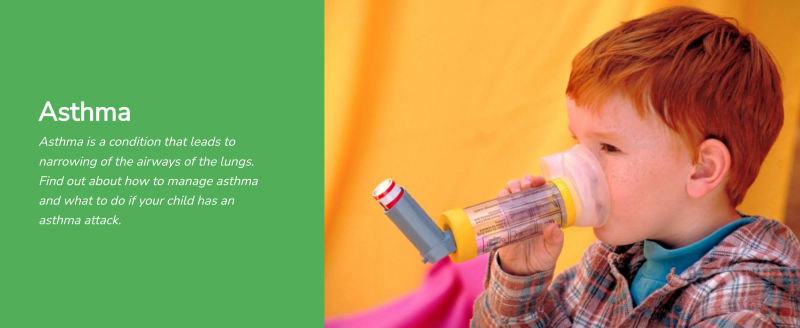Asthma Interval Symptoms
Asthma Interval Symptoms
Some tamariki get asthma symptoms between asthma attacks. These symptoms are called interval symptoms. If your child has lots of interval symptoms, they may need a regular preventer inhaler. Or, they may need an increase or a change in their asthma treatment. Talk to your doctor.
Key points about asthma interval symptoms
- interval symptoms are asthma symptoms that happen between asthma attacks
- interval symptoms include breathlessness, a nighttime cough, and wheezing or coughing with exercise
- needing to use a reliever inhaler more than twice a week may also mean your child has interval symptoms
- tamariki and rangatahi with interval symptoms may need a change in their asthma treatment
- ask your child's doctor for an asthma action plan to help manage their interval symptoms
What are interval symptoms?
Many tamariki and rangatahi get no symptoms between asthma attacks. But, some tamariki get asthma symptoms between asthma attacks. These symptoms are called interval symptoms.
Some tamariki may have interval symptoms a couple of times a week, or as much as every day. If your child has interval symptoms, they may need a regular preventer inhaler. Or, they may need an increase or a change in their asthma treatment. Talk to your doctor.
Signs that your child has interval symptoms include:
- coughing at night
- wheezing or coughing with exercise
- feeling breathless
- needing to use a reliever inhaler more than twice a week
See the KidsHealth's page on asthma to learn more about the condition
What causes interval symptoms?
Interval symptoms are caused by inflammation in the airways of the lungs. This inflammation leads to narrowing of the airways. Interval symptoms can be triggered by things like exercise and cold or damp air.
How are interval symptoms different from other asthma symptoms?
There are 2 types of asthma symptoms - those that happen during an asthma attack and those that happen between asthma attacks. Interval symptoms are the symptoms that happen between asthma attacks.
During an asthma attack, your child’s symptoms will be worse.
See the KidsHealth's page on asthma attacks to learn more
What should I do if my child is getting frequent interval symptoms?
If your child has lots of interval symptoms, they may need a regular preventer inhaler. Or, they may need an increase or a change in their asthma treatment. Talk to your doctor.
If your child has none or very few interval symptoms, this suggests their asthma treatment is working well.
See the KidsHealth's page on asthma medicine to learn more about relievers and preventers
How can my child’s interval symptoms be improved?
The best way to improve interval symptoms is to make sure your child has a good asthma action plan. Ask your child's doctor or nurse for an asthma action plan. This will be specific to your child.
Having an asthma action plan means you can be confident to use the medicines your child needs for their asthma. This is both for their day-to-day symptoms as well as during an asthma attack. It is a good idea to review the asthma plan every year.
There are very good asthma treatments available. You can stop asthma from interfering with your child's life, including enjoyment of sports and play.
See more KidsHealth content on asthma
This page last reviewed 22 August 2023.
Do you have any feedback for KidsHealth?
If you have any feedback about the KidsHealth website, or have a suggestion for new content, please get in touch with us.
Email us now
